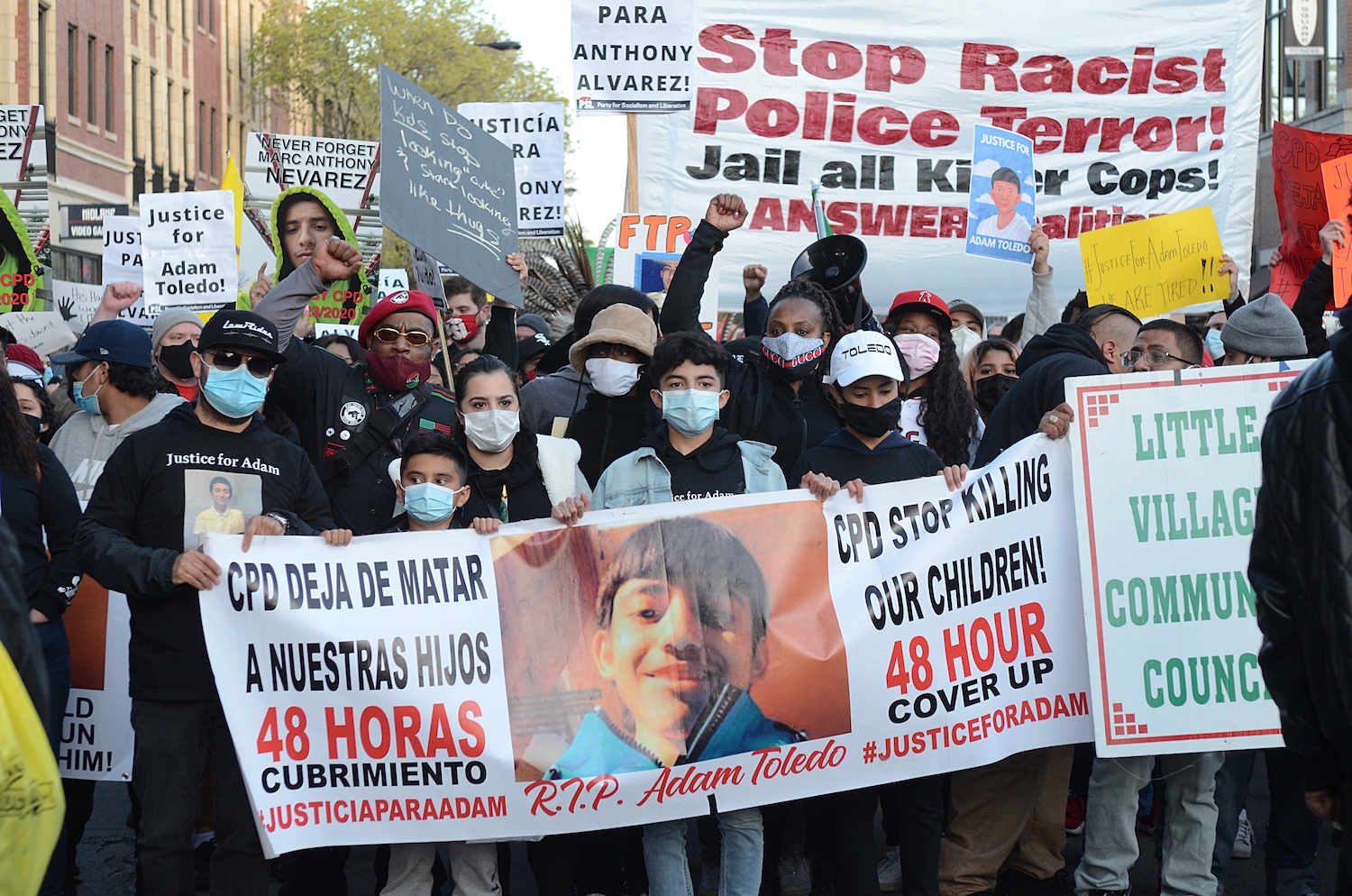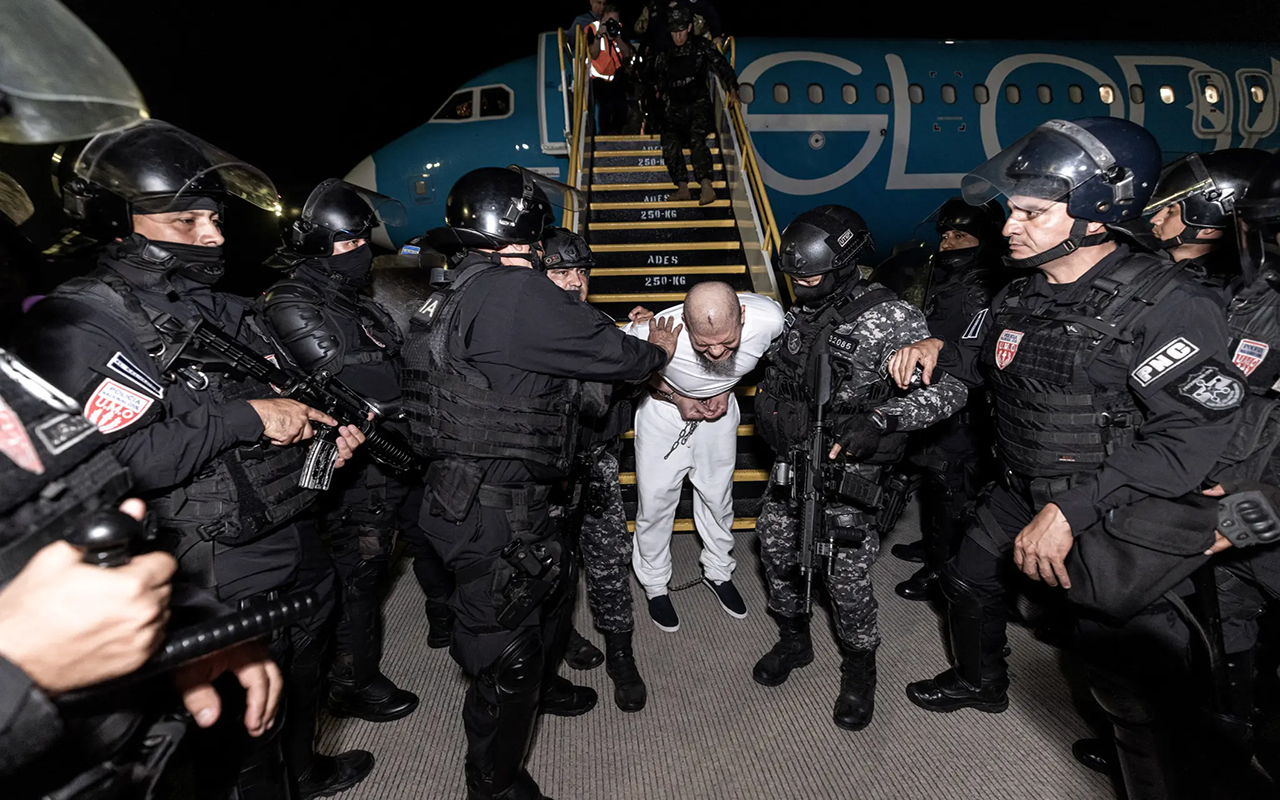
Next on the police reform chopping block: Adam Toledo’s killing calls for an end to foot pursuits
Toledo’s killing after a short foot pursuit is one of many across the country that’s ended in death. Change is the only path forward for many leaders.
Adam Toledo, a 13-year-old boy in Chicago, was shot and killed by an officer while he was unarmed with his hands in the air.
It happened early on the morning of March 29, when Chicago police officer Erick Stillman and his partner rescinded to an alert of eight shots fired in the city’s Little Village neighborhood on the West Side.
In less than a minute, they encountered 21-year-old Ruben Roman and 13-year-old Adam Toledo fleeing on foot. Roman was detained almost immediately, but Toledo made it into an alley before Stillman caught up to him, and shot him with his hands in the air.
He was a seventh grader at Gary Elementary School in Chicago, a young Latino not yet in high school. The New York Times reported he was one of the youngest people killed by Illinois police in recent years.
The nation has been numbed, but at the same time, police reform initiatives are spreading like wildfire, with advocates like Julián Castro calling for a national use of force standard.
In Maryland, new legislation will limit the use of no-knock warrants. It expands access to disciplinary records and establishes a “necessary and proportional” use-of-force policy, meaning police in violation of the new bill, by killing or seriously injuring someone, are liable to up to 10 years in prison.
New Mexico also recently became the second state (Colorado was the first), to ban “qualified immunity,” the judicial doctrine that provides officers a massive shield against civil consequences for violating people’s rights.
San Antonio Texas just narrowly missed the approval of Proposition B, which would have also stripped police unions of their collective bargaining ability.
Passage and implementation remain matters altogether, as the aforementioned cases of police overreach continue to surface, or be made public months after their occurrence, especially in communities where such legislation is unheard of.
RELATED CONTENT
In Chicago, Mayor Lori Lightfoot and Latino leaders in the city recently issued a directive that the Chicago police should enact a new foot pursuit policy before summer 2021.
Lightfoot and Police Superintendent David Brown say a new foot pursuit policy is in the works.
Both Mayor Lori Lightfoot and Police Supt. David Brown say that a new foot pursuit policy is being developed. Lightfoot said today. “It’s one of the most dangerous activities that officers engage in.”https://t.co/Tdf2bNauXM
— WTTW (Chicago PBS) (@wttw) April 29, 2021
“They involve officers chasing people through the streets that are often crowded, sometimes at night, with adrenaline running through their systems, and this is the kind of context that can lead to excessive force and too often does lead to excessive force,” the mayor said at a press conference in April.
Chicago’s Latino leaders, like Attorney Arturo Jáuregui and Jesse Fuentes, director of policy with the Puerto Rican Cultural Center, recently gathered to call on Chicago PD and the city to put a moratorium on foot pursuits in the wake of Toledo’s case, and those that continue to occur.
They also called for an overhaul of Chicago’s policing system, so the public has a clearer picture of what authorities are entitled to do, and so that the public knows its own rights.
Their vision for new procedures and policies for foot pursuits would outline when an officer should be allowed to engage in such a chase, and it would also clarify the circumstances in which lethal force is allowed to be used.
The advocates say new policies should also outline disciplinary actions for cops who violate the long-overdue standards, especially when no immediate, serious threat is present.










LEAVE A COMMENT: